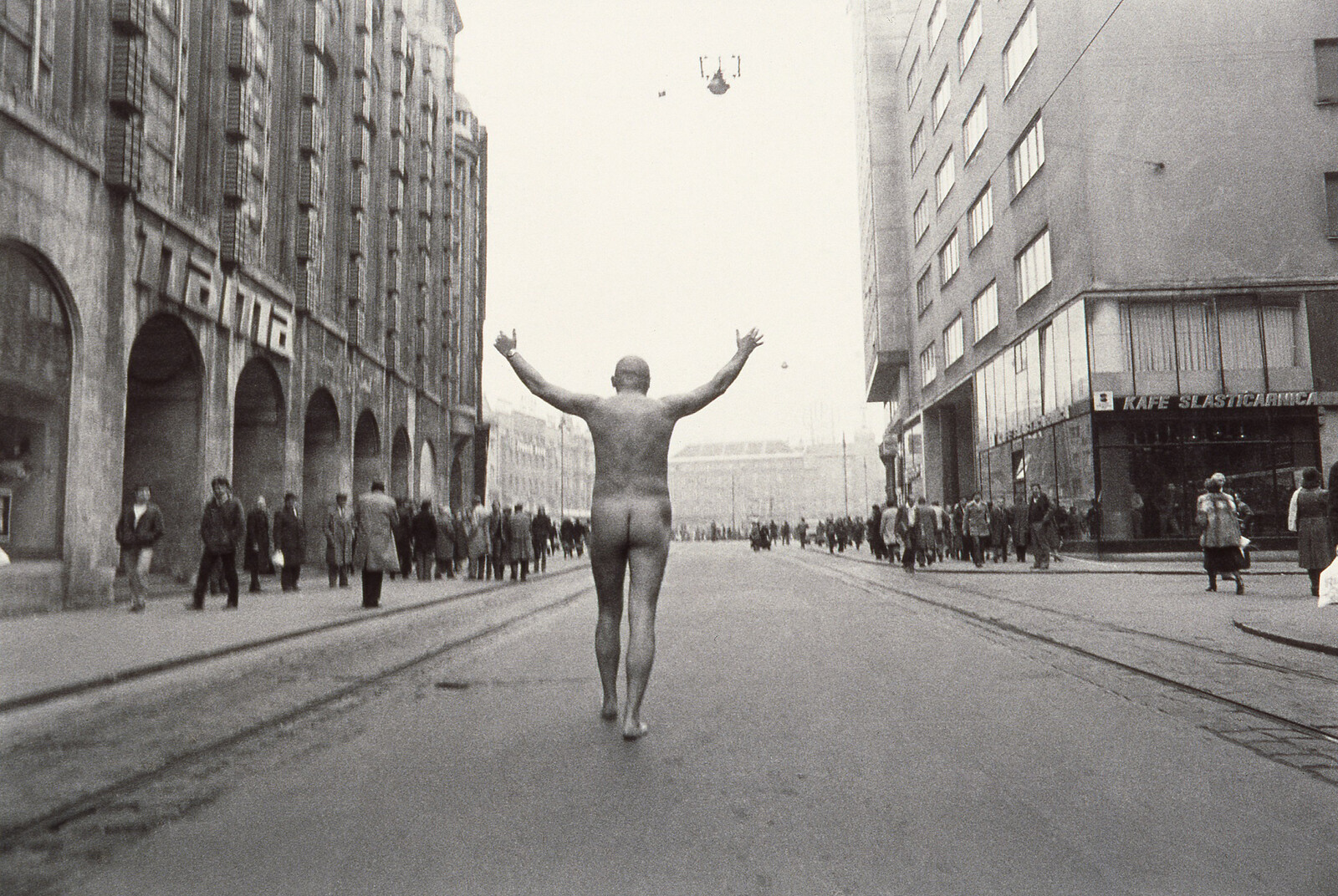Heritage Project
June 8–August 27, 2023
Cross-border Dialogues; a cooperation with MSU Zagreb
May 26–August 27, 2023
Body and Territory
Cross-Border Dialogues
A cooperation with MSU Zagreb
May 26–August 27, 2023
The exhibition Body and Territory focuses on works by artists who—in different ways—deal with the relationship between body and identity. What role does the body still play in art today, what is its significance in society? What is the appeal of bodily acts of transformation and border crossings, which have always been a characteristic part of identity creation? The exhibition shows works by Austrian artists or artists currently living and working in Austria who negotiate these questions in dialogue with artists from the territory of the former Yugoslav republics. At first glance, these works often have formal similarities, but their artistic impulses come from different preconditions and contexts. The selection of works, which ranges from the 1960s to the present, points to changes in how identity is inscribed in our bodies or how the body is able to overcome the identity projected onto it.
Body and Territoriy is based on a curatorial exchange programme between Muzej suvremene umjetnosti Zagreb (MSU Zagreb) and Kunsthaus Graz. It is to be understood as a dialogue between neighbours, in which connecting elements of artistic practices around the themes of body and identity are made visible.
With works by: Marina Abramović, Josef Bauer, Ana Brus & Günter Brus, CLUB FORTUNA, Lea Culetto, Josef Dabernig, Katrina Daschner, Vlasta Delimar, Ines Doujak & John Barker, Ana Nuša Dragan & Srečo Dragan, VALIE EXPORT, Susanna Flock, Gelitin, Tomislav Gotovac, Igor Grubić, Skupina OHO, Marina Gržinić & Aina Šmid, Nilbar Güreş, Peter Gerwin Hoffmann, IRWIN, Sanja Iveković, Željko Jerman, Anna Jermolaewa, Birgit Jürgenssen, Richard Kriesche, Nina Kurtela, Katalin Ladik, Laibach, Luiza Margan, Marko Marković, Branko Milisković, F. J. Nestler-Rebeau, Friederike Pezold, Neli Ružić, Toni Schmale, Mladen Stilinović, Ingeborg Strobl, Slaven Tolj & Marija Grazio, Milica Tomić, Peter Weibel, Erwin Wurm, Vlasta Žanić.
Curated by Katia Huemer (Kunsthaus Graz), Jasna Jakšić, Radmila Iva Janković (MSU Zagreb)
Plamen Dejanoff
Heritage Project
June 8–August 27, 2023
Reconstructed, restored, supplemented, and decontextualized architectural fragments are shown in their aesthetic effect. Precisely documented and researched in terms of craftsmanship, knowledge and material transfer, they address the notion and construction of a common European cultural heritage. Plamen Dejanoff, who has become known for works that interweave strategies of representation in the worlds of art, consumption, and everyday life, draws on his personal history of a pan-European life for his new series of works. Through precise reconstructions, the show raises political questions of colonization, identity formation as well as the production of architectural, artistic and craft knowledge.
Cultural heritage (English: national heritage) is a designation. It means responsibility, but also (national) identity. It stands for an asset that should figuratively belong to “all of us”.
For Heritage Project, the Austro-Bulgarian artist uses his family heritage in his hometown of Veliko Tarnovo, Bulgaria—restituted in the post-communist era—to explore architectural and material transformations and their significance for identity constructions. Together with several international specialists, Dejanoff adapts and reconstructs architectural elements as objects at the intersection of representation and function. As sculptural quotations in the exhibition space, they tell stories about their origins, the transfer and use of craft knowledge. On another level Dejanoff uses economic and institutional knowledge systems like an entrepreneur, weaving a web of relationships between institutions, disciplines, places, and times. Heritage Project is strategically planned—and has been for many years and past projects—as a long-term, processual work that appropriates all levels of art production and exhibition making to use for the cultural development of his hometown of Veliko Tarnovo. Once an important cultural centre, Veliko Tarnovo is now a tourist town without active contemporary art centres. Dejanoff now plans to open a first part of its architectural heritage to the public as a political statement and social sculpture in 2024. He skilfully embraces the mechanics of art to create a growing centre for art, critical discourse, and memory. After dismantling and shipping the exhibition back to his hometown, he thus establishes a place of “international heritage” in the European periphery. As a future branch of the exhibition, it will reconnect with the Kunsthaus. The flags marking the inauguration will be hung in the room for the time being.
Curated by Katrin Bucher-Trantow.

